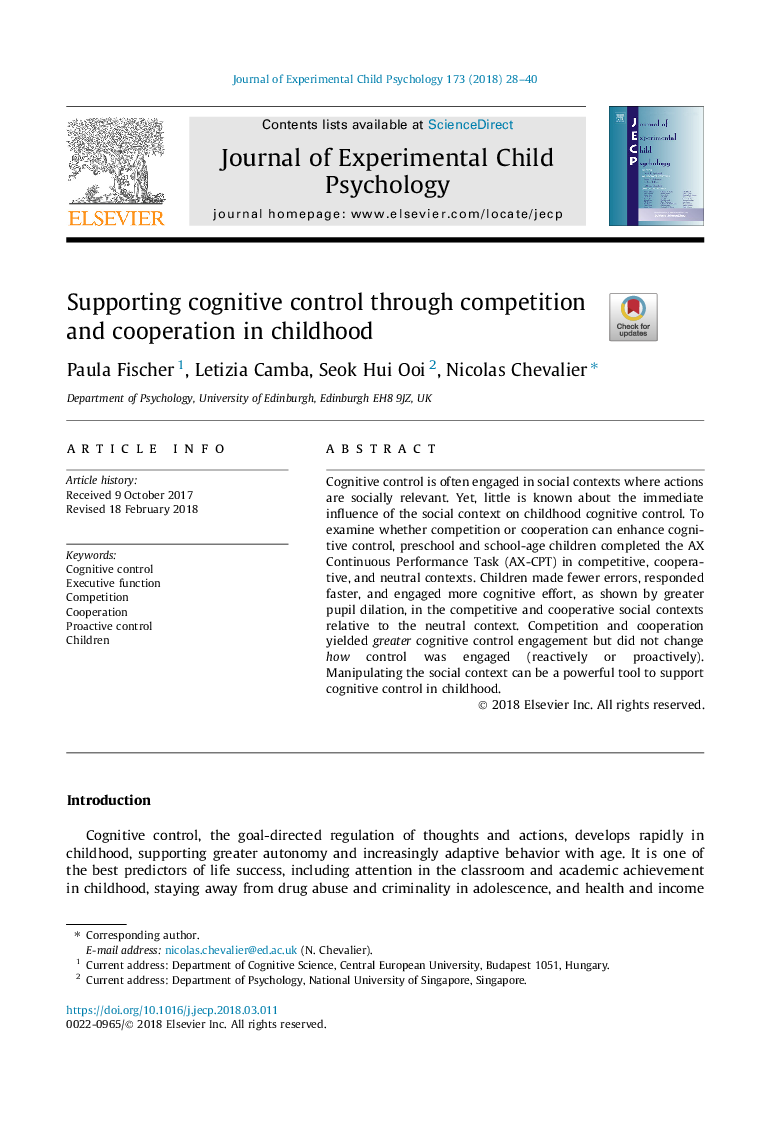| Article ID | Journal | Published Year | Pages | File Type |
|---|---|---|---|---|
| 7273756 | Journal of Experimental Child Psychology | 2018 | 13 Pages |
Abstract
Cognitive control is often engaged in social contexts where actions are socially relevant. Yet, little is known about the immediate influence of the social context on childhood cognitive control. To examine whether competition or cooperation can enhance cognitive control, preschool and school-age children completed the AX Continuous Performance Task (AX-CPT) in competitive, cooperative, and neutral contexts. Children made fewer errors, responded faster, and engaged more cognitive effort, as shown by greater pupil dilation, in the competitive and cooperative social contexts relative to the neutral context. Competition and cooperation yielded greater cognitive control engagement but did not change how control was engaged (reactively or proactively). Manipulating the social context can be a powerful tool to support cognitive control in childhood.
Related Topics
Social Sciences and Humanities
Psychology
Developmental and Educational Psychology
Authors
Paula Fischer, Letizia Camba, Seok Hui Ooi, Nicolas Chevalier,
